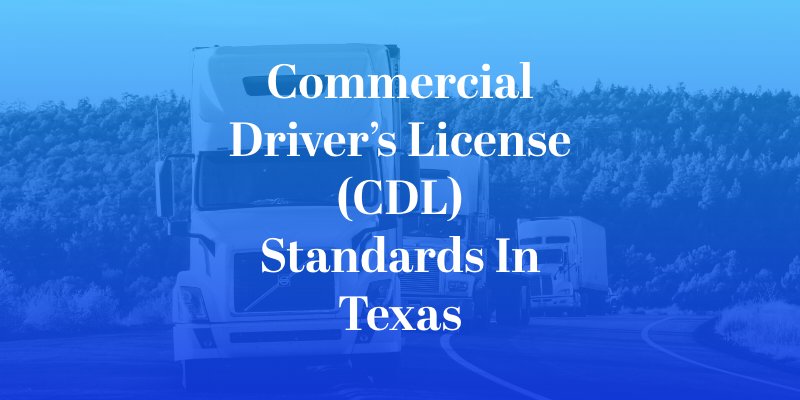Commercial trucks are dangerous motor vehicles behind many catastrophic and fatal traffic accidents in Texas each year. In an effort to improve the safety of the trucking industry, large and heavy commercial vehicles may only legally be operated by drivers with valid commercial driver’s licenses (CDLs). Speak with an experienced truck accident lawyer in San Antonio if you were injured in an accident.
Types of Commercial Driver’s Licenses in Texas
A commercial driver’s license is a special type of operator’s license that grants the holder the power to drive certain types of commercial vehicles. This includes large trucks, 18-wheelers, semi-trucks, box trucks, utility vehicles, buses and large vans.
There are three different classifications of CDLs in Texas:
- Class A: any commercial vehicle with a gross vehicle weight rating (GVWR) or gross combination weight rating (GCWR) of 26,001 pounds or more, as long as the weight of the towed vehicle accounts for at least 10,000 pounds of the total.
- Class B: any single commercial vehicle with a GVWR of 26,000 pounds or more, or a single vehicle that meets this weight that is towing a vehicle with a GVWR of 10,000 pounds or less. Buses that hold up to 24 people (including the driver) also fall under this class.
- Class C: Any single vehicle or combination of commercial vehicles that is not included in Class A or B.
There are also additional endorsements that may be required if a commercial vehicle is carrying certain types of cargo, such as hazardous materials.

How Do You Get a CDL in Texas?
To get a CDL in Texas, an individual must first obtain a regular driver’s license. Then, the driver needs a Certification of Medical Status from a qualified examiner to confirm that he or she is physically fit enough to operate a commercial vehicle.
Next, the driver must complete and submit the Texas CDL application, prove U.S. citizenship and identity, pass a vision exam and a commercial operation knowledge test, and pass a skills test (commercial vehicle driving test).
When Might a CDL Get Suspended or Revoked?
In Texas, a driver may have his or her commercial driver’s license suspended or revoked for committing certain traffic violations or criminal offences. Examples include criminal speeding, driving under the influence, refusing to submit to a breathalyzer test, hit-and-run, and medical disqualifications. The nature and length of the suspension will depend on the circumstances. If a car was involved in your accident, make sure to speak with an experienced car accident lawyer in San Antonio.
What if a Truck Operator Falls Below CDL Standards?
Operating a big rig or another type of commercial vehicle is a great responsibility. If a commercial driver falls below the standards required of CDL holders in Texas, he or she could face several consequences on a civil, criminal and administrative level. This can include being held liable, or financially responsible, for an accident.
Trucking companies and other employers have a responsibility to vet new drivers to ensure that they possess proper licensure and are qualified to drive. If these standards are not met and an inexperienced or unqualified driver causes a truck accident as a result, the employer can be liable for a victim’s related injuries and expenses.
If you get involved in a truck accident in Texas, a San Antonio personal injury lawyer can help you understand your legal rights and recovery options. Our lawyers can investigate potential signs of fault for your accident, such as a missing, suspended, revoked or expired CDL. We will pursue justice and fair compensation from all liable parties on your behalf. Contact us today.
